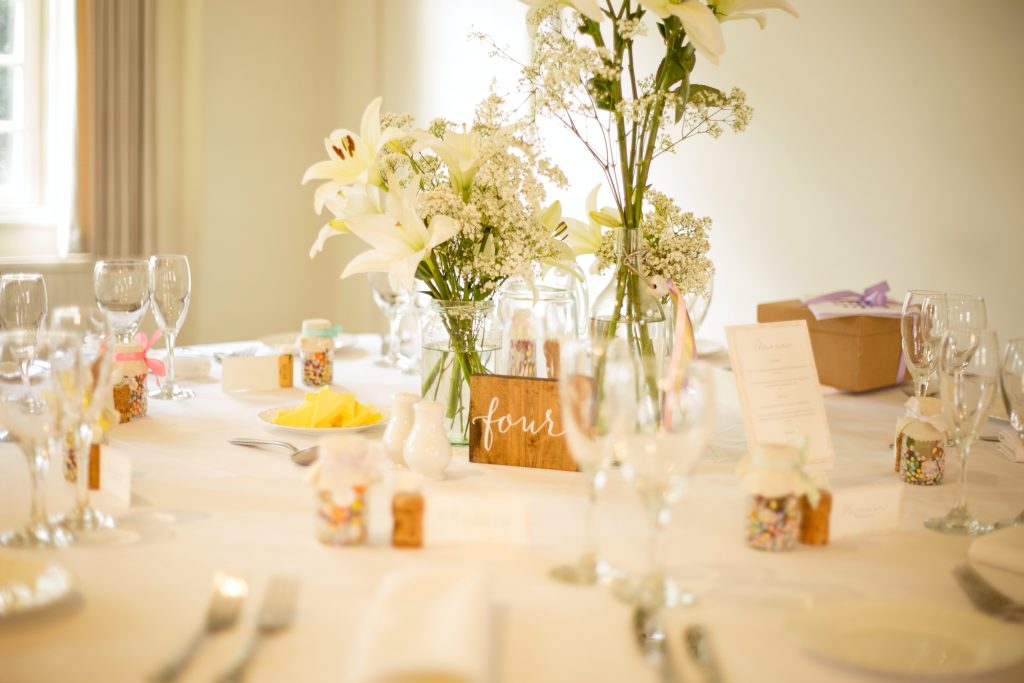Dear Dr. Chani,
I have recently attended several small weddings in backyards, country clubs, and parking lots. I have also watched a few weddings on Zoom. What I would have once been totally shocked to see has become fairly common. When my friends first started getting married in a casual, downsized way, I pitied them. I believe they felt bad for themselves, as well. Yet, the more that couples have gone through with this kind of wedding, the more that everyone around me seems to look at small weddings as the new normal.
I am struggling with this new approach to weddings. Ever since I was little, my friends and I used to pore over wedding albums and talk about the exciting weddings we heard about or attended. I have always looked forward to a large, normal wedding. Yet, suddenly I feel guilty about having a normal wedding. My parents and their friends have joked many times, in front of me, that they hope I will “find someone soon” so that they too can “get away with making a small wedding.” I know my parents are not the most financially comfortable, and I wonder if they are not fully kidding.
I am torn. I am wondering if I should seriously consider having a small wedding, even if the coronavirus goes away and the situation returns to normal. What do you think?
Sincerely,
Rina
Dear Rina,
Your feelings of disappointment and guilt that you describe in your letter reflect a deep self-awareness on your part. Your desire to have a large and “normal wedding” on a scale that was common in your community until now is understandable. I would imagine that many people in your position hope that they will have the opportunity to have a large wedding. Where are your feelings of guilt coming from? It sounds like you are in a process of reconciling conflicting emotions. You have mixed feelings about whether you should hold on to your precious anticipation of a large wedding or appreciate the benefits of a smaller one.
It is likely that you might not have come to face these emotions had the situation with the coronavirus not opened your eyes to a new way of looking at weddings. Previously, you may have taken for granted that you would have a large scale, classy wedding. In the days before coronavirus, a large wedding hall, several hundred person guest list, hot smorgasbord buffet, and a full meal for each guest might have been considered standard for many people you know. You pictured in your mind a beautiful event, one that would reflect your taste and style. Imagining the details of the dresses, the flowers, and the music might have brought you great joy.
Now you feel guilty holding yourself and your parents to these relatively expensive standards. After attending several small, private weddings, you realize that a Jewish wedding does not have to be large and costly. You are aware that by lowering your expectations, you may save your parents a lot of financial stress. Since you recognize that people in your community might accept a smaller wedding more readily than they would have in the past, you are reluctant to justify the additional expense of a larger wedding.
Maybe the guilt you feel stems partly from your own participation in smaller weddings that has awakened you to the realization that the fanfare of a larger wedding is not necessary to enhance your happiness. This is in addition to your parents expressing their wish that you have a small wedding, leading you to become more acutely aware of a wedding’s financial impact.
It can be helpful for you to crystalize your own feelings about smaller weddings. Think about what you noticed at the ones you recently attended. What was the nature of the joy you sensed from the chosson and kallah? What level of happiness did you see between them? What about the guests who attended the smaller wedding? To what extent were the guests involved in the wedding? You may be wondering, “If a chosson and kallah can feel just as happy (or even happier) at a small wedding as at an elaborate wedding, then what do I really need to make my wedding a celebration to remember?”
In order to further your own understanding, ask yourself, “Whose needs should I have in mind when I plan the details of my wedding?” “To what extent should I be focused on creating an experience to give meaning and happiness to the chosson and kallah, their immediate families, close friends, and other guests?” “How would each aspect of the wedding contribute to this?” Your answers to these questions can help you resolve your conflicting emotions about the type of wedding you wish for.
Recently, a kallah who planned to be married in her own backyard confided in me, “I am really enthralled with the idea of having a small wedding of less than thirty people. Yet I am nervous that many people who would have been invited will feel that they were left out of a fun party. But why should I have to be on show, and have a really huge wedding just to give people a great time? I would rather send them each a gift certificate to a restaurant as a way of sharing my simcha.” This kallah’s feelings highlight her personal awareness of what mattered to her for her own wedding.
You need to think about these questions and come to your own realization of what each aspect of your wedding means to you. This will pave the way for you to create your own vision of your ideal wedding that you can anticipate with great joy.
Wishing you much happiness,
Chani
